-
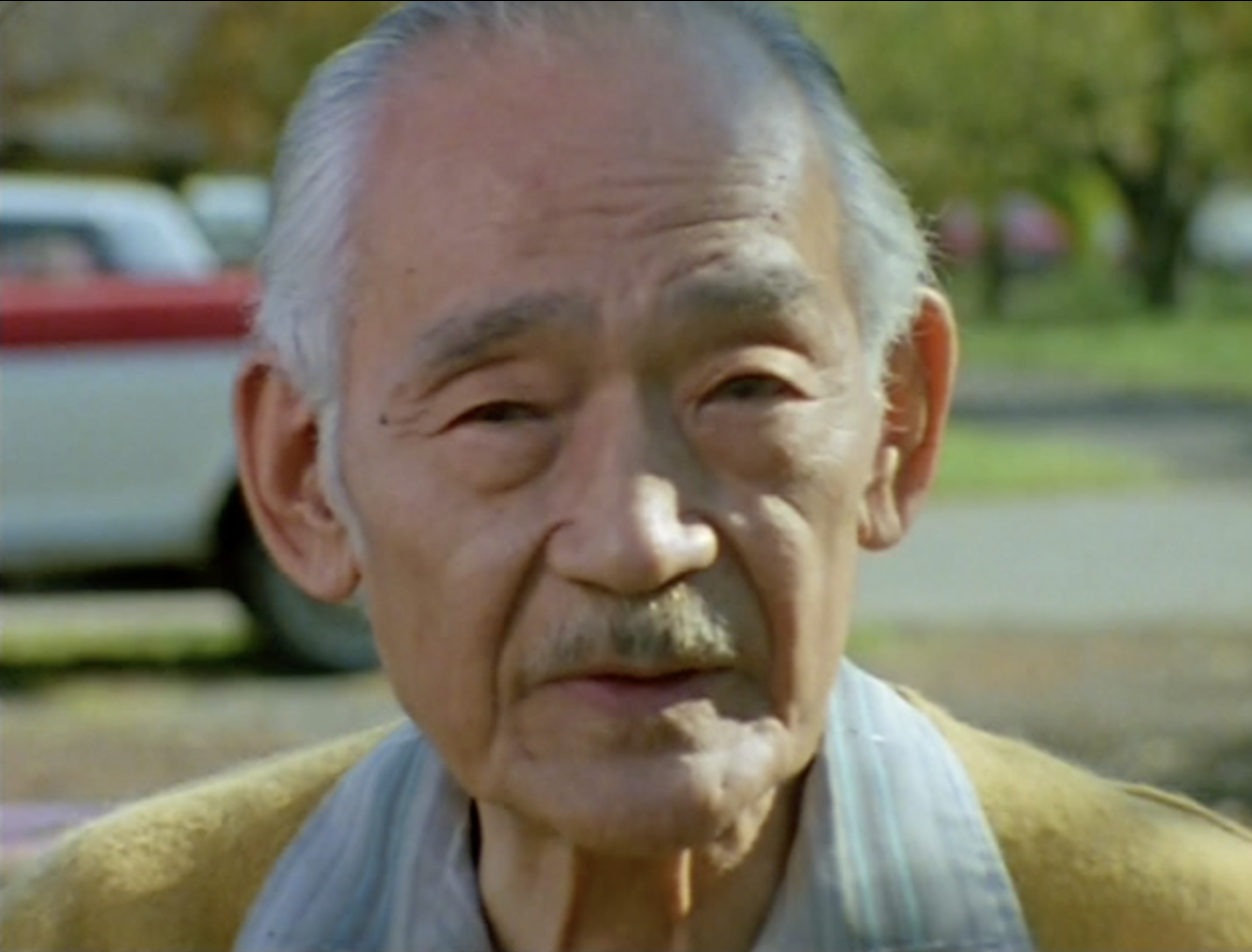 Minoru Yasui Interview: The importance of the coram nobis cases (audio only)
Minoru Yasui Interview: The importance of the coram nobis cases (audio only) Nisei male. Born October 19, 1916, in Hood River, Oregon. Earned a law degree from the University of Oregon law school and was practicing law prior to World War II. In 1942, deliberately defied the curfew imposed upon Japanese Americans in Portland, Oregon, and was arrested. His case was tried, and he was sentenced to one year in prison and given a $5000 fine. The appeal eventually reached the Supreme Court, which ruled that the government did have the authority to restrict the lives of civilian citizens during wartime. Yasui's fine was removed and he was released to the Minidoka concentration camp, Idaho. In the 1980s, his case was reopened under writ of error coram nobis, and 1986 his conviction was overturned by the Oregon federal court.
-
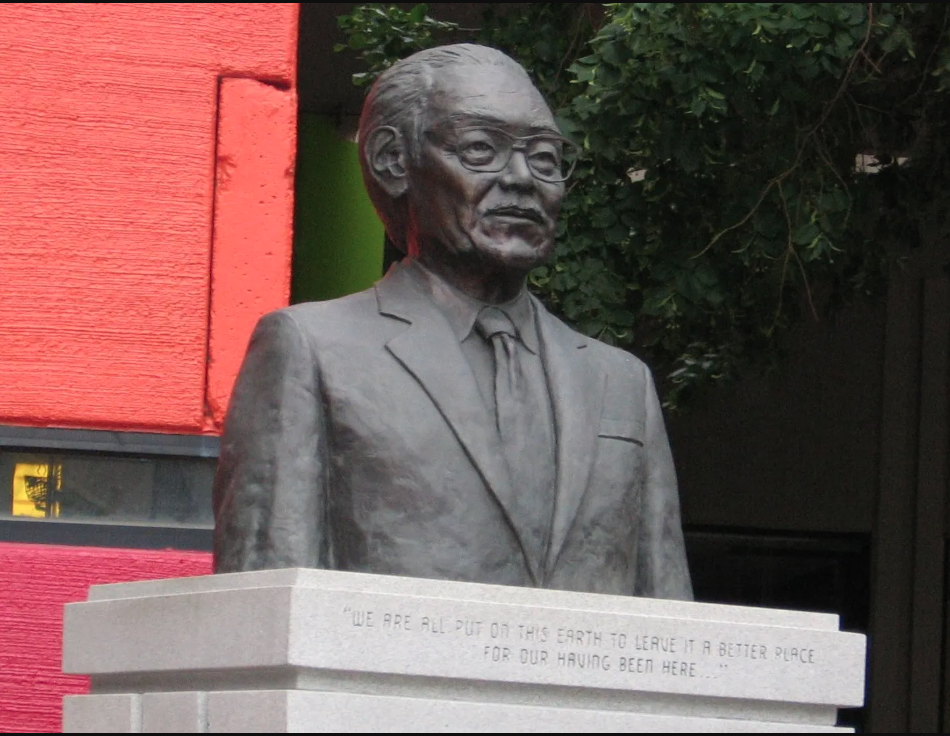 Bust of Minoru Yasui in Denver's Sakura Square
Bust of Minoru Yasui in Denver's Sakura Square
-
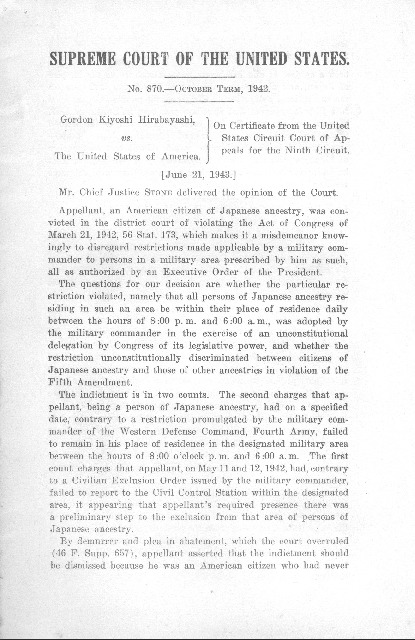 Gordon Kiyoshi Hirabayashi vs. The United States of America
Gordon Kiyoshi Hirabayashi vs. The United States of America
-
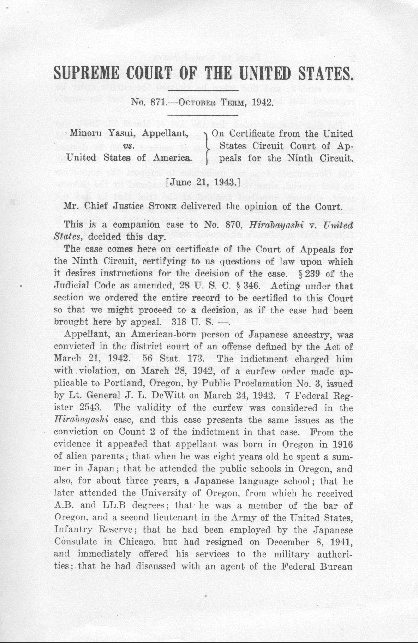 Minoru Yasui, Appellant, vs. United States of America
Minoru Yasui, Appellant, vs. United States of America
-
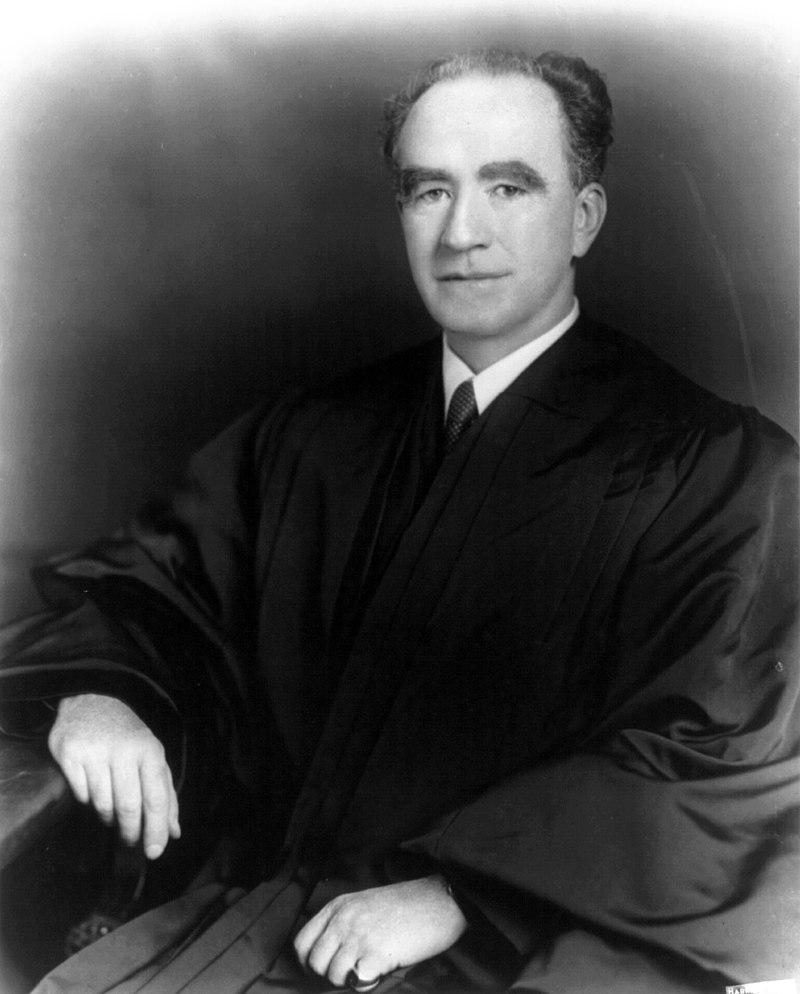 Justice Frank Murphy,
Justice Frank Murphy, Official Portrait, 1940
-
 Minoru Yasui Interview: Making the decision to violate the curfew; difficulty getting arrested (audio only)
Minoru Yasui Interview: Making the decision to violate the curfew; difficulty getting arrested (audio only) Nisei male. Born October 19, 1916, in Hood River, Oregon. Earned a law degree from the University of Oregon law school and was practicing law prior to World War II. In 1942, deliberately defied the curfew imposed upon Japanese Americans in Portland, Oregon, and was arrested. His case was tried, and he was sentenced to one year in prison and given a $5000 fine. The appeal eventually reached the Supreme Court, which ruled that the government did have the authority to restrict the lives of civilian citizens during wartime. Yasui's fine was removed and he was released to the Minidoka concentration camp, Idaho. In the 1980s, his case was reopened under writ of error coram nobis, and 1986 his conviction was overturned by the Oregon federal court.
-
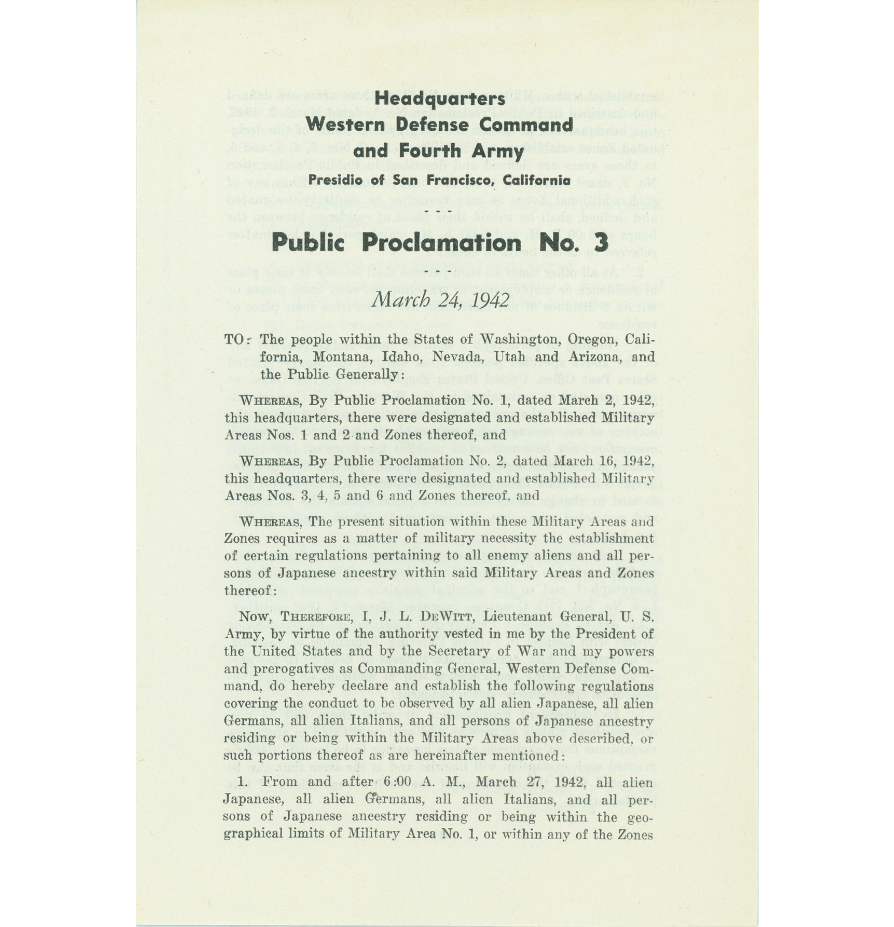 Public Proclamation No. 3
Public Proclamation No. 3 Western Defense Command Public Proclamation No. 3 establishing a curfew for Japanese residents and creating a list of items they are no longer allowed to have in their possession, March 24, 1942
-
 Minoru Yasui Interview: Thoughts on the Japanese American Citizens League's wartime stance
Minoru Yasui Interview: Thoughts on the Japanese American Citizens League's wartime stance
Thoughts on the Japanese American Citizens League's wartime stance (audio only)
This interview is audio-only. It contains raw footage used by Steven Okazaki in his 1985 film Unfinished Business.
This material is based upon work assisted by a grant from the Department of the Interior, National Park Service. Any opinions, finding, and conclusions or recommendations expressed in this material are those of the author(s) and do not necessarily reflect the views of the Department of the Interior.
-
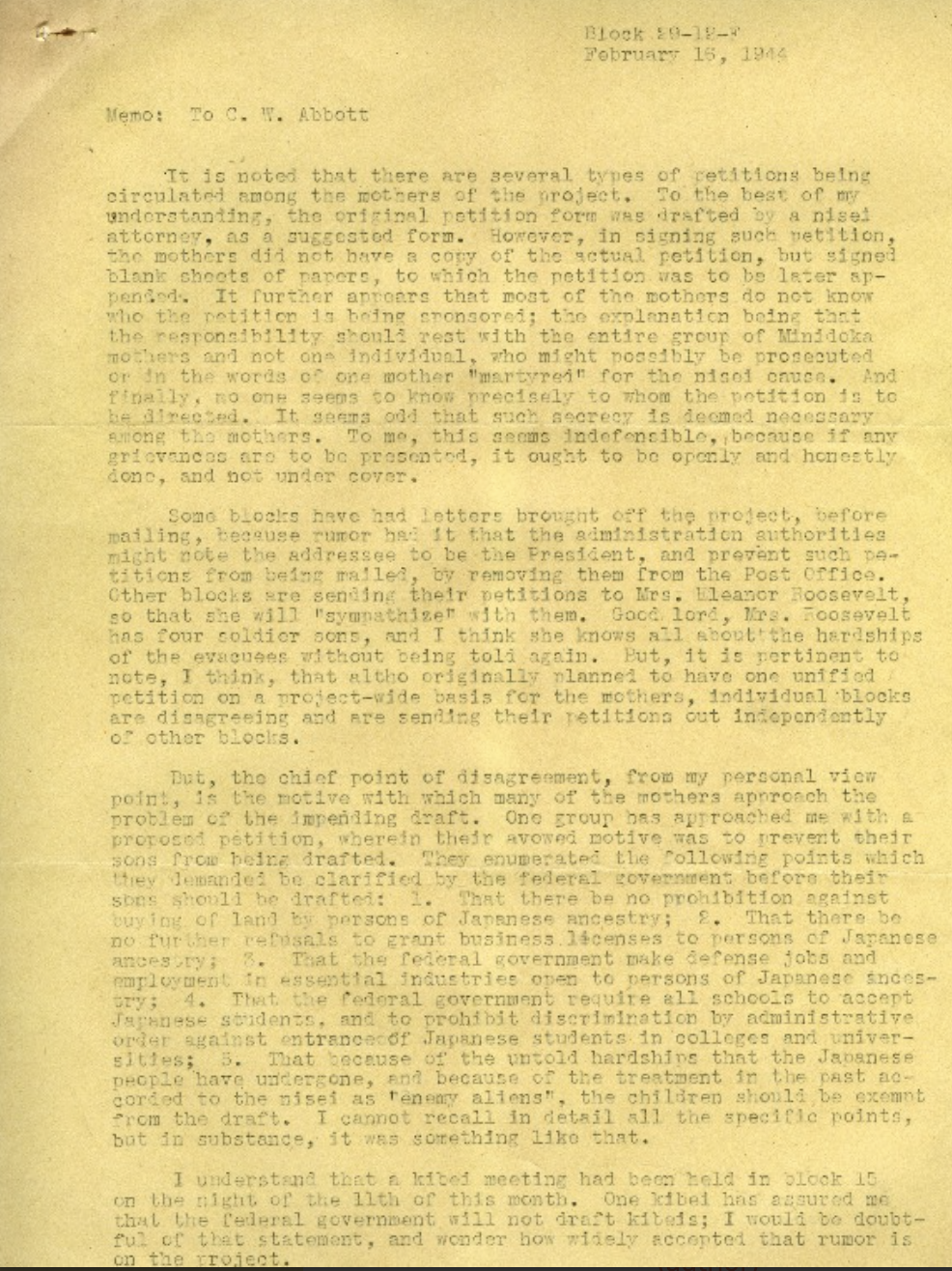 Nisei Petition
Nisei Petition
-
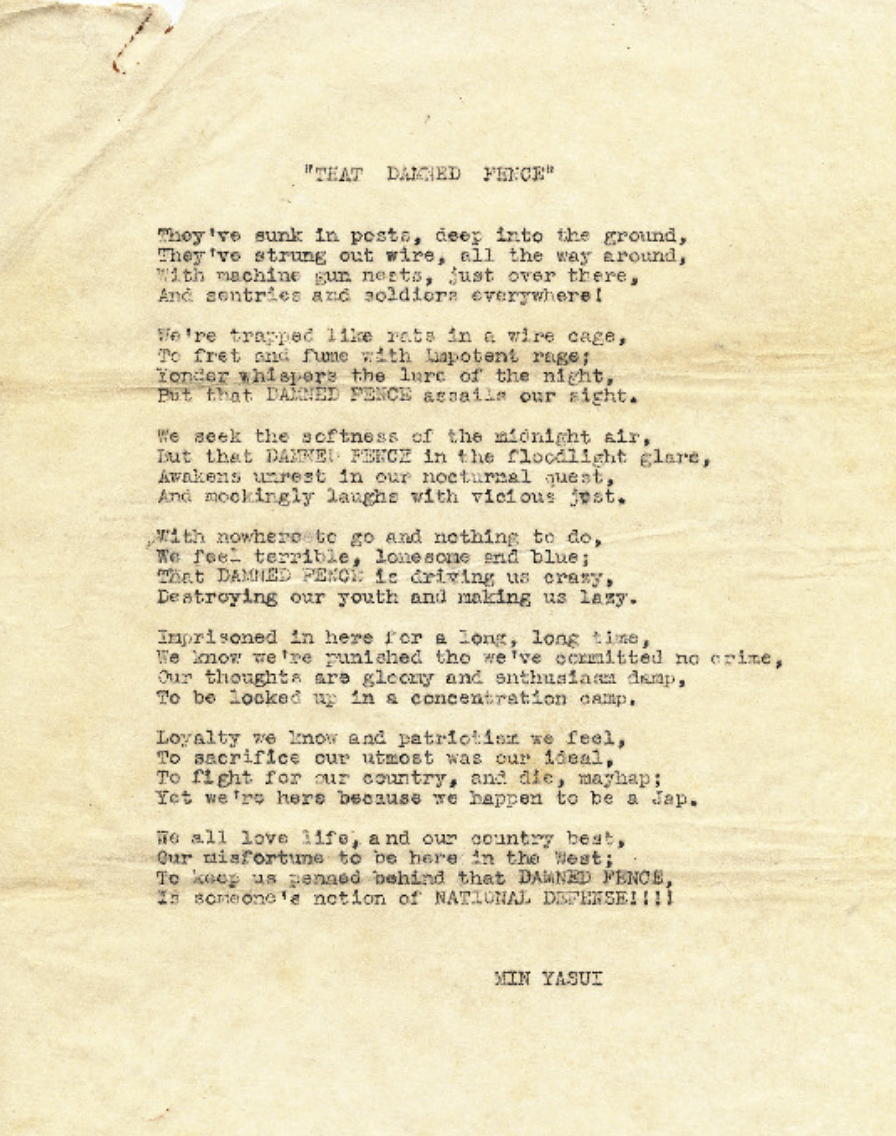 "That Damned Fence"
"That Damned Fence" A poem written by Min Yasui while he was incarcerated in Minidoka concentration camp.
-
 Minoru Yasui Interview: Thoughts on the Wartime Draft Resistors.
Minoru Yasui Interview: Thoughts on the Wartime Draft Resistors. Thoughts on the Japanese American Citizens League's wartime stance (audio only)
This interview is audio-only. It contains raw footage used by Steven Okazaki in his 1985 film Unfinished Business.
This material is based upon work assisted by a grant from the Department of the Interior, National Park Service. Any opinions, finding, and conclusions or recommendations expressed in this material are those of the author(s) and do not necessarily reflect the views of the Department of the Interior.
-
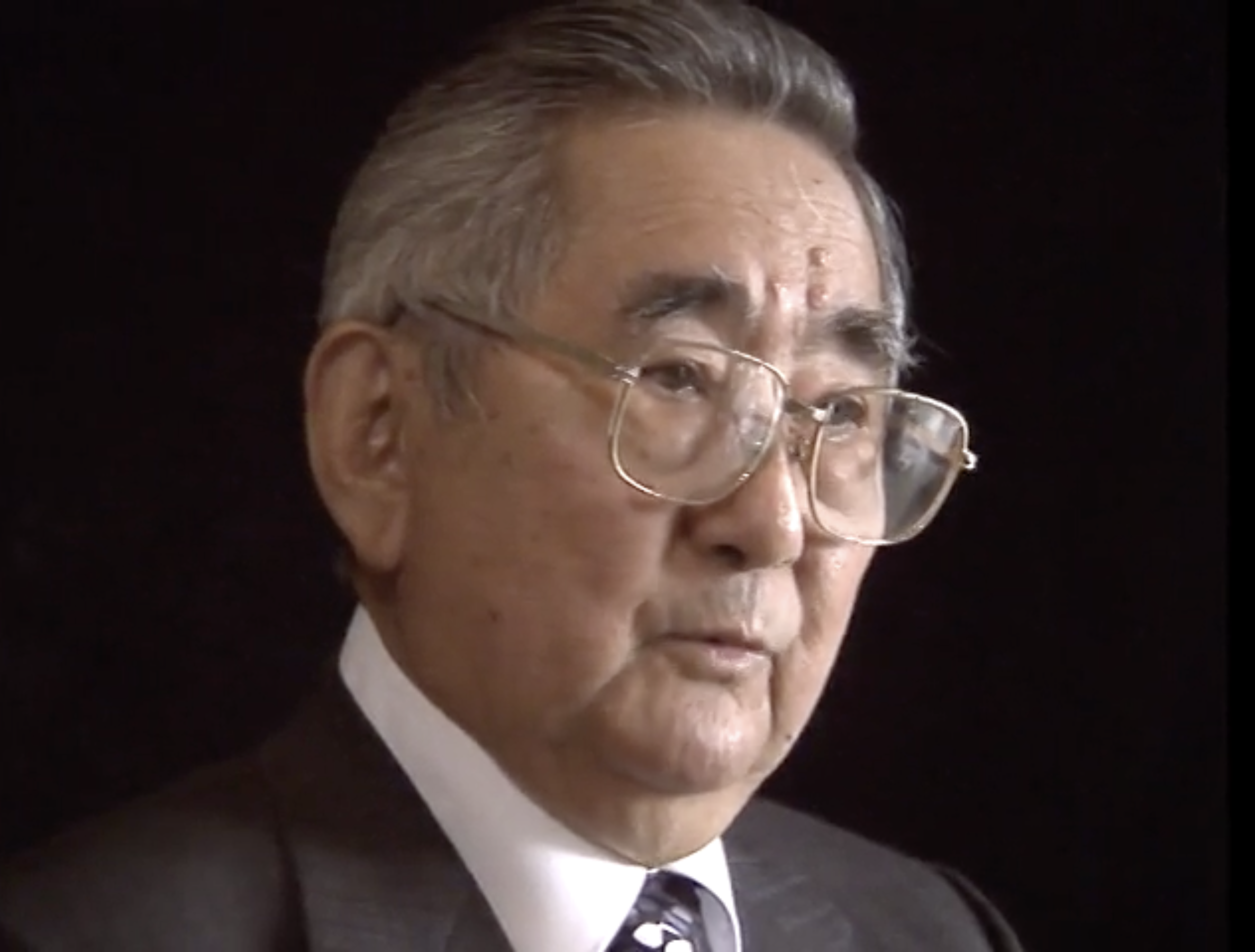 Jim Akatsu Interview: Feeling disappointment upon meeting Minoru Yasui
Jim Akatsu Interview: Feeling disappointment upon meeting Minoru Yasui Feeling disappointment upon meeting Minoru Yasui
This interview was conducted by filmmaker Frank Abe for his 2000 documentary, Conscience and the Constitution, about the World War II resisters of conscience at the Heart Mountain incarceration camp. As a result, the interviews in this collection are typically not life histories, instead primarily focusing on issues surrounding the resistance movement itself.
-
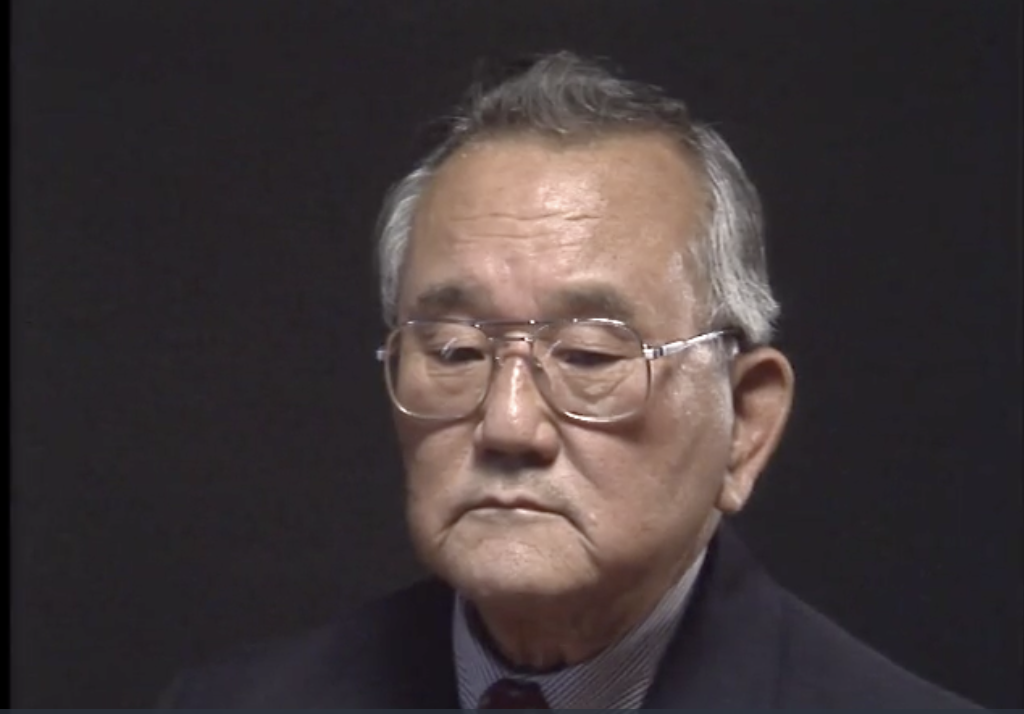 Yosh Kuromiya Interview: Feeling disappointed at Minoru Yasui's attempts to discourage a test case.
Yosh Kuromiya Interview: Feeling disappointed at Minoru Yasui's attempts to discourage a test case. Feeling disappointed at Minoru Yasui's attempts to discourage a test case.
This interview was conducted by filmmaker Frank Abe for his 2000 documentary, Conscience and the Constitution, about the World War II resisters of conscience at the Heart Mountain incarceration camp. As a result, the interviews in this collection are typically not life histories, instead primarily focusing on issues surrounding the resistance movement itself
 Minoru Yasui Interview: The importance of the coram nobis cases (audio only) Nisei male. Born October 19, 1916, in Hood River, Oregon. Earned a law degree from the University of Oregon law school and was practicing law prior to World War II. In 1942, deliberately defied the curfew imposed upon Japanese Americans in Portland, Oregon, and was arrested. His case was tried, and he was sentenced to one year in prison and given a $5000 fine. The appeal eventually reached the Supreme Court, which ruled that the government did have the authority to restrict the lives of civilian citizens during wartime. Yasui's fine was removed and he was released to the Minidoka concentration camp, Idaho. In the 1980s, his case was reopened under writ of error coram nobis, and 1986 his conviction was overturned by the Oregon federal court.
Minoru Yasui Interview: The importance of the coram nobis cases (audio only) Nisei male. Born October 19, 1916, in Hood River, Oregon. Earned a law degree from the University of Oregon law school and was practicing law prior to World War II. In 1942, deliberately defied the curfew imposed upon Japanese Americans in Portland, Oregon, and was arrested. His case was tried, and he was sentenced to one year in prison and given a $5000 fine. The appeal eventually reached the Supreme Court, which ruled that the government did have the authority to restrict the lives of civilian citizens during wartime. Yasui's fine was removed and he was released to the Minidoka concentration camp, Idaho. In the 1980s, his case was reopened under writ of error coram nobis, and 1986 his conviction was overturned by the Oregon federal court. Bust of Minoru Yasui in Denver's Sakura Square
Bust of Minoru Yasui in Denver's Sakura Square  Gordon Kiyoshi Hirabayashi vs. The United States of America
Gordon Kiyoshi Hirabayashi vs. The United States of America  Minoru Yasui, Appellant, vs. United States of America
Minoru Yasui, Appellant, vs. United States of America  Justice Frank Murphy, Official Portrait, 1940
Justice Frank Murphy, Official Portrait, 1940 Minoru Yasui Interview: Making the decision to violate the curfew; difficulty getting arrested (audio only) Nisei male. Born October 19, 1916, in Hood River, Oregon. Earned a law degree from the University of Oregon law school and was practicing law prior to World War II. In 1942, deliberately defied the curfew imposed upon Japanese Americans in Portland, Oregon, and was arrested. His case was tried, and he was sentenced to one year in prison and given a $5000 fine. The appeal eventually reached the Supreme Court, which ruled that the government did have the authority to restrict the lives of civilian citizens during wartime. Yasui's fine was removed and he was released to the Minidoka concentration camp, Idaho. In the 1980s, his case was reopened under writ of error coram nobis, and 1986 his conviction was overturned by the Oregon federal court.
Minoru Yasui Interview: Making the decision to violate the curfew; difficulty getting arrested (audio only) Nisei male. Born October 19, 1916, in Hood River, Oregon. Earned a law degree from the University of Oregon law school and was practicing law prior to World War II. In 1942, deliberately defied the curfew imposed upon Japanese Americans in Portland, Oregon, and was arrested. His case was tried, and he was sentenced to one year in prison and given a $5000 fine. The appeal eventually reached the Supreme Court, which ruled that the government did have the authority to restrict the lives of civilian citizens during wartime. Yasui's fine was removed and he was released to the Minidoka concentration camp, Idaho. In the 1980s, his case was reopened under writ of error coram nobis, and 1986 his conviction was overturned by the Oregon federal court. Public Proclamation No. 3 Western Defense Command Public Proclamation No. 3 establishing a curfew for Japanese residents and creating a list of items they are no longer allowed to have in their possession, March 24, 1942
Public Proclamation No. 3 Western Defense Command Public Proclamation No. 3 establishing a curfew for Japanese residents and creating a list of items they are no longer allowed to have in their possession, March 24, 1942 Minoru Yasui Interview: Thoughts on the Japanese American Citizens League's wartime stance Thoughts on the Japanese American Citizens League's wartime stance (audio only) This interview is audio-only. It contains raw footage used by Steven Okazaki in his 1985 film Unfinished Business. This material is based upon work assisted by a grant from the Department of the Interior, National Park Service. Any opinions, finding, and conclusions or recommendations expressed in this material are those of the author(s) and do not necessarily reflect the views of the Department of the Interior.
Minoru Yasui Interview: Thoughts on the Japanese American Citizens League's wartime stance Thoughts on the Japanese American Citizens League's wartime stance (audio only) This interview is audio-only. It contains raw footage used by Steven Okazaki in his 1985 film Unfinished Business. This material is based upon work assisted by a grant from the Department of the Interior, National Park Service. Any opinions, finding, and conclusions or recommendations expressed in this material are those of the author(s) and do not necessarily reflect the views of the Department of the Interior. Nisei Petition
Nisei Petition  "That Damned Fence" A poem written by Min Yasui while he was incarcerated in Minidoka concentration camp.
"That Damned Fence" A poem written by Min Yasui while he was incarcerated in Minidoka concentration camp. Minoru Yasui Interview: Thoughts on the Wartime Draft Resistors. Thoughts on the Japanese American Citizens League's wartime stance (audio only) This interview is audio-only. It contains raw footage used by Steven Okazaki in his 1985 film Unfinished Business. This material is based upon work assisted by a grant from the Department of the Interior, National Park Service. Any opinions, finding, and conclusions or recommendations expressed in this material are those of the author(s) and do not necessarily reflect the views of the Department of the Interior.
Minoru Yasui Interview: Thoughts on the Wartime Draft Resistors. Thoughts on the Japanese American Citizens League's wartime stance (audio only) This interview is audio-only. It contains raw footage used by Steven Okazaki in his 1985 film Unfinished Business. This material is based upon work assisted by a grant from the Department of the Interior, National Park Service. Any opinions, finding, and conclusions or recommendations expressed in this material are those of the author(s) and do not necessarily reflect the views of the Department of the Interior. Jim Akatsu Interview: Feeling disappointment upon meeting Minoru Yasui Feeling disappointment upon meeting Minoru Yasui This interview was conducted by filmmaker Frank Abe for his 2000 documentary, Conscience and the Constitution, about the World War II resisters of conscience at the Heart Mountain incarceration camp. As a result, the interviews in this collection are typically not life histories, instead primarily focusing on issues surrounding the resistance movement itself.
Jim Akatsu Interview: Feeling disappointment upon meeting Minoru Yasui Feeling disappointment upon meeting Minoru Yasui This interview was conducted by filmmaker Frank Abe for his 2000 documentary, Conscience and the Constitution, about the World War II resisters of conscience at the Heart Mountain incarceration camp. As a result, the interviews in this collection are typically not life histories, instead primarily focusing on issues surrounding the resistance movement itself. Yosh Kuromiya Interview: Feeling disappointed at Minoru Yasui's attempts to discourage a test case. Feeling disappointed at Minoru Yasui's attempts to discourage a test case. This interview was conducted by filmmaker Frank Abe for his 2000 documentary, Conscience and the Constitution, about the World War II resisters of conscience at the Heart Mountain incarceration camp. As a result, the interviews in this collection are typically not life histories, instead primarily focusing on issues surrounding the resistance movement itself
Yosh Kuromiya Interview: Feeling disappointed at Minoru Yasui's attempts to discourage a test case. Feeling disappointed at Minoru Yasui's attempts to discourage a test case. This interview was conducted by filmmaker Frank Abe for his 2000 documentary, Conscience and the Constitution, about the World War II resisters of conscience at the Heart Mountain incarceration camp. As a result, the interviews in this collection are typically not life histories, instead primarily focusing on issues surrounding the resistance movement itself